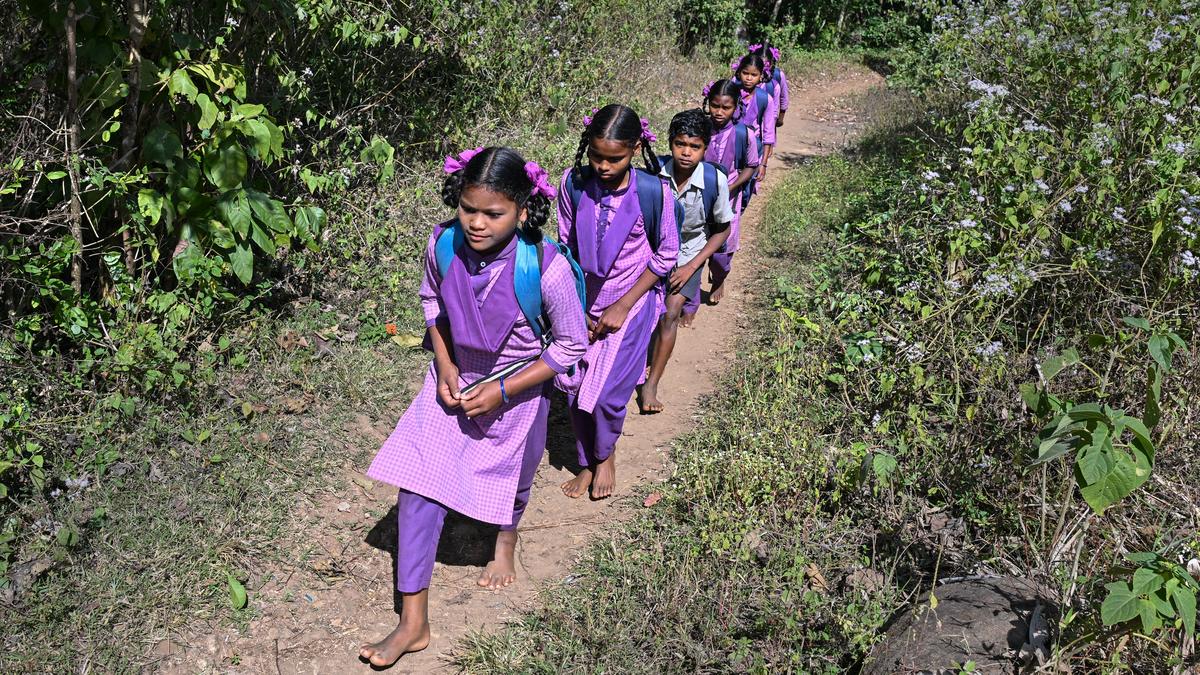There are particularly low levels of engagement in learning and education among the vast majority of students in India, according to multiple experts who spoke to The Hindu. Most children fail to do their homework or engage substantively with their course material.
This atmosphere creates a unique opportunity for cutting-edge technologies like generative A.I. tools to improve learning outcomes and help students interact positively with their study material, said former Rajya Sabha MP and former BJD party IT and Tech cell head, Amar Patnaik.
“A.I. in education is a boon in disguise because it will force and push students to have critical thinking skills and creativity which is sorely lacking in India,” said Mr. Patnaik.
“The OpenAI study says that A.I. in education could negatively affect students but I think instead that it will make more students interested in learning and therefore school curriculum will need to be changed significantly because of A.I. tools that everyone will and should use,” Mr. Patnaik added.
Furthermore, some educators say that the technology will force students to learn in a digital-friendly and evidence-based way in the near future.
“A.I. systems can be beneficial in education because the more you put into the prompt, the more you explain your understanding of a problem, the better your answer will be from A.I. tools. So we have to see this as an opportunity for educators to use the technology to get students to engage more on subjects that they’re not always interested in,” said Mr. Krishnan from IIT Madras.
Another potential benefit of A.I. educational tools in India is that they could provide a better, more productive outlet for students to spend their free time, especially in comparison to social media platforms.
“With kids spending so much time on their devices and computers, A.I. systems provide a far, far better alternative than social media or other things they do on their devices. It’s far more fruitful for students to use fun educational A.I. tools like ours compared to spending an hour on TikTok or Instagram,” said Mr. Sharma from Schoolnet.
Nevertheless, educators, politicians, and tech executives say that some thoughtful, carefully considered guardrails and regulations will be needed to successfully implement and use the technology in the long run.
“Guardrails for A.I. in education to ensure it’s accurate, unbiased, and helpful have to be taken seriously because students are our future and we need to ensure that they learn the right way,” said Mr. Krishnan.
“If you don’t expose students to thoughtfully designed generative A.I. educational tools that use a Socratic style and have other checks and balances they will be forced to learn from general A.I. tools and the internet at large which have many existing issues as we know,” Mr. Krishnan added.
Another challenge is ensuring that the data collected in India to create and run A.l. tools within the educational sector as well as other fields are appropriately gathered and that students don’t blindly follow the output of the technology.
“A.I. biases baked into the current data sets are a big issue. So if you’re making decisions based on flawed or biased data sets and their corresponding A.I. tools, there will be worse or problematic actions taken,” said Mr. Patnaik, the former Rajya Sabha member.
“In the Indian context, as a civil servant and public official, I have the experience to know that we cannot create A.I. systems that are built only upon data collected through formal official channels such as government records, consumer purchases, online behavior, etc. because a lot of insights and answers to problems in India come through informal data channels from entities like street vendors, labourers, unskilled workers, and others in informal sectors,” Mr. Patnaik added.
Although potential A.I. risks to education in India were highlighted in the OpenAI study, major concerns around other prominent use cases of the technology deserve just as much or more attention in the coming months, according to some tech-policy experts like Mr. Krishnan from IIT-Madras and Mr. Patnaik, the former Rajya Sabha member.
Mr. Krishnan said he was surprised that the results of OpenAI’s risk perception survey didn’t highlight threats like the role of A.I. in the military and warfare while Patnaik said he would have expected the study to highlight how the technology could be used negatively or positively to impact climate change.
EdTech executives like Mr. Sharma from Schoolnet say that the future of A.I. in education is full of excitement and innovation because of the potential to democratise and scale access to world-class educational tools across India including among the poorest schools and students.
“Soon we will have an A.I. avatar or teacher trained on Einstein, Aristotle, Tagore, you know the best of the best, and every student then gets access to a genius teacher,” said Mr. Sharma.
“For example, if a student gets stuck on a problem or has a complicated question, they can turn to an A.I. chatbot that gives outputs similar to that of Einstein or other world-renowned thinkers. We have such an A.I. application currently in an early beta stage of testing but has been rolled out with some success in a few Jharkhand government schools and of course the more users and the more data you feed the technology, the better it gets.”
Published – December 26, 2024 04:02 pm IST
